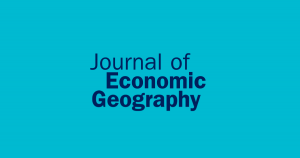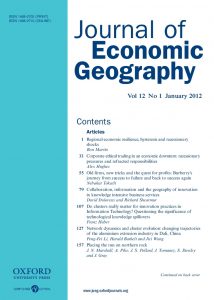Abstract
The aim of this article is to analyze the contribution of social ties to moving to high-opportunity locations and assess whether their effect is more pronounced for low-income individuals as a compensation for economic resources. This is done by utilizing Swedish administrative data and by focusing on a wide range of relationships (observed directly or inferred from the data): close and distant family ties, former co-workers and university peers. For estimating the effect of social ties, we use linear probability models, where observed migration is regressed on individual-specific and target-specific characteristics. To account for the nonrandom sorting of movers between locations, we apply sending municipality–target municipality–occupation fixed effects. Our results suggest that there is a positive relationship between migration and the presence of links at given targets for all the examined contact types. The effects are even stronger if the targets are hard-to-reach municipalities (located in Stockholm County or a municipality with higher housing prices). We also demonstrate that, when moving to such opportunity-rich areas, ties to former co-workers and university peers are even more essential assets for those with limited resources. Furthermore, we show that direct help with housing through contacts is an existing factor that contributes to the effect of social networks on residential mobility. The results reinforce the idea that social ties may be of great help in reducing barriers to mobility and can be used to compensate for limited economic resources. We demonstrate the validity of our fixed-effect estimation strategy using a placebo contact approach.




